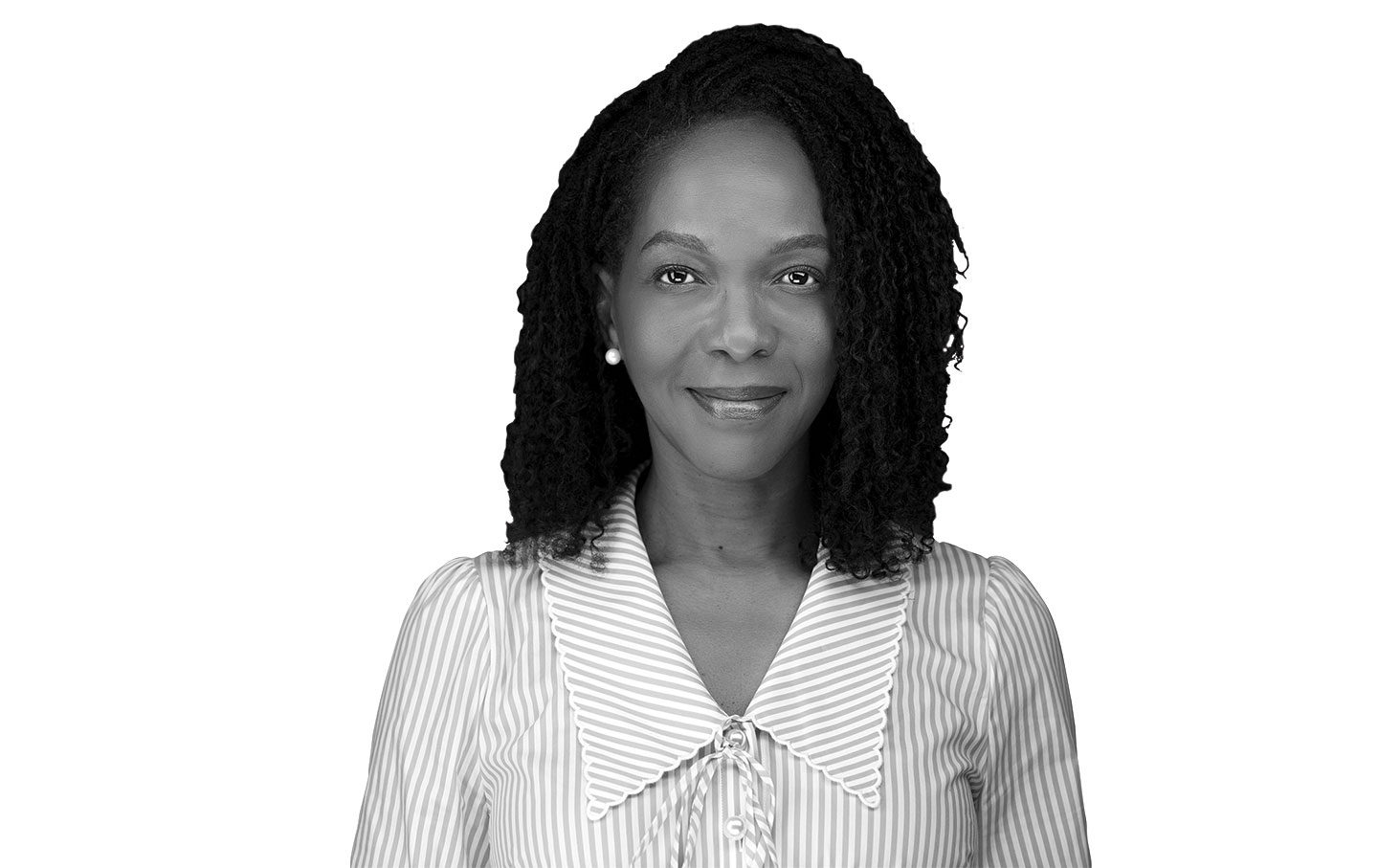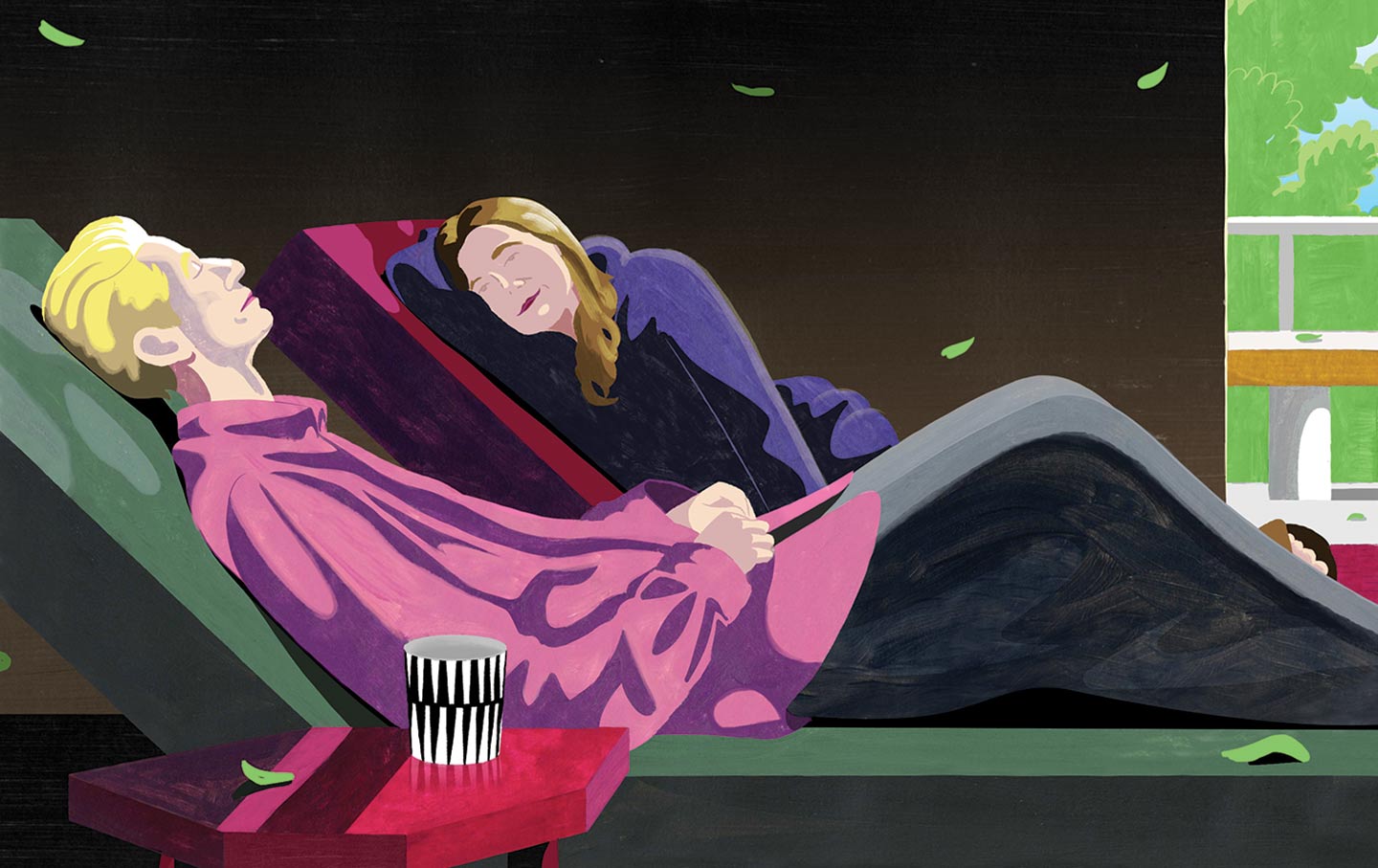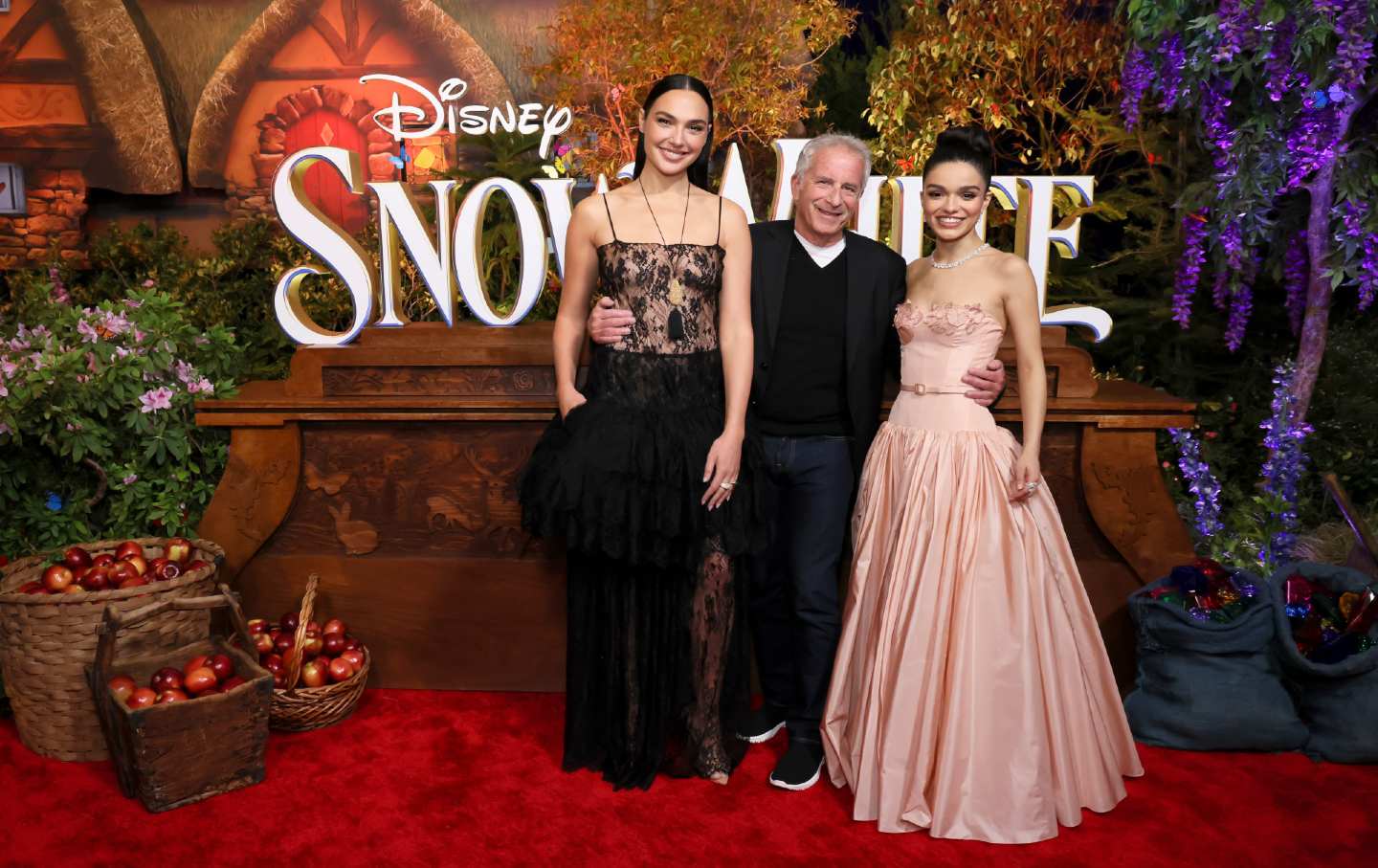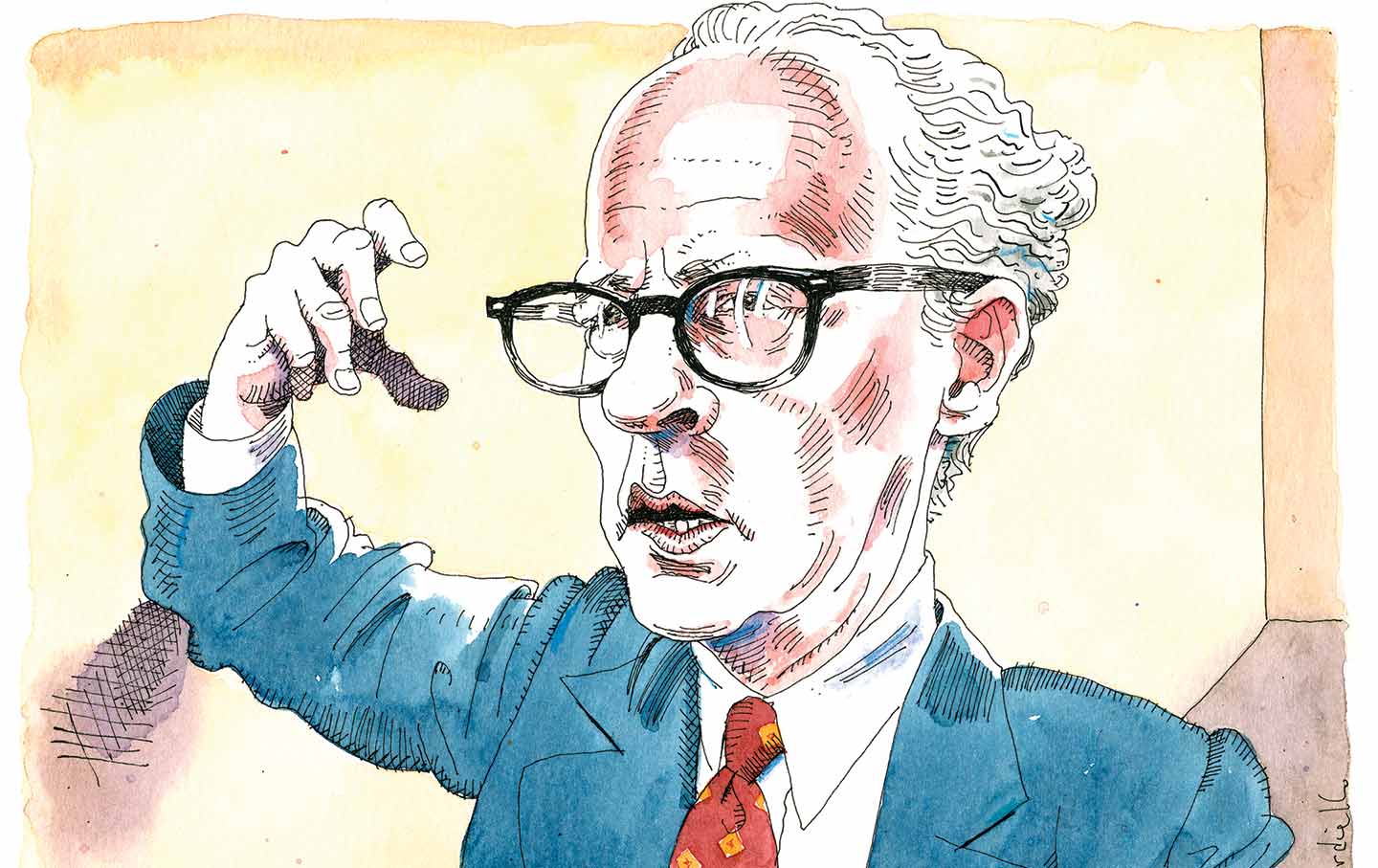A Better World
The science fiction of Joanna Russ.
The Radical World-making of Joanna Russ
In her science fiction, the novelist offered not only an astringent critiques of the present but also bold visions of the future.
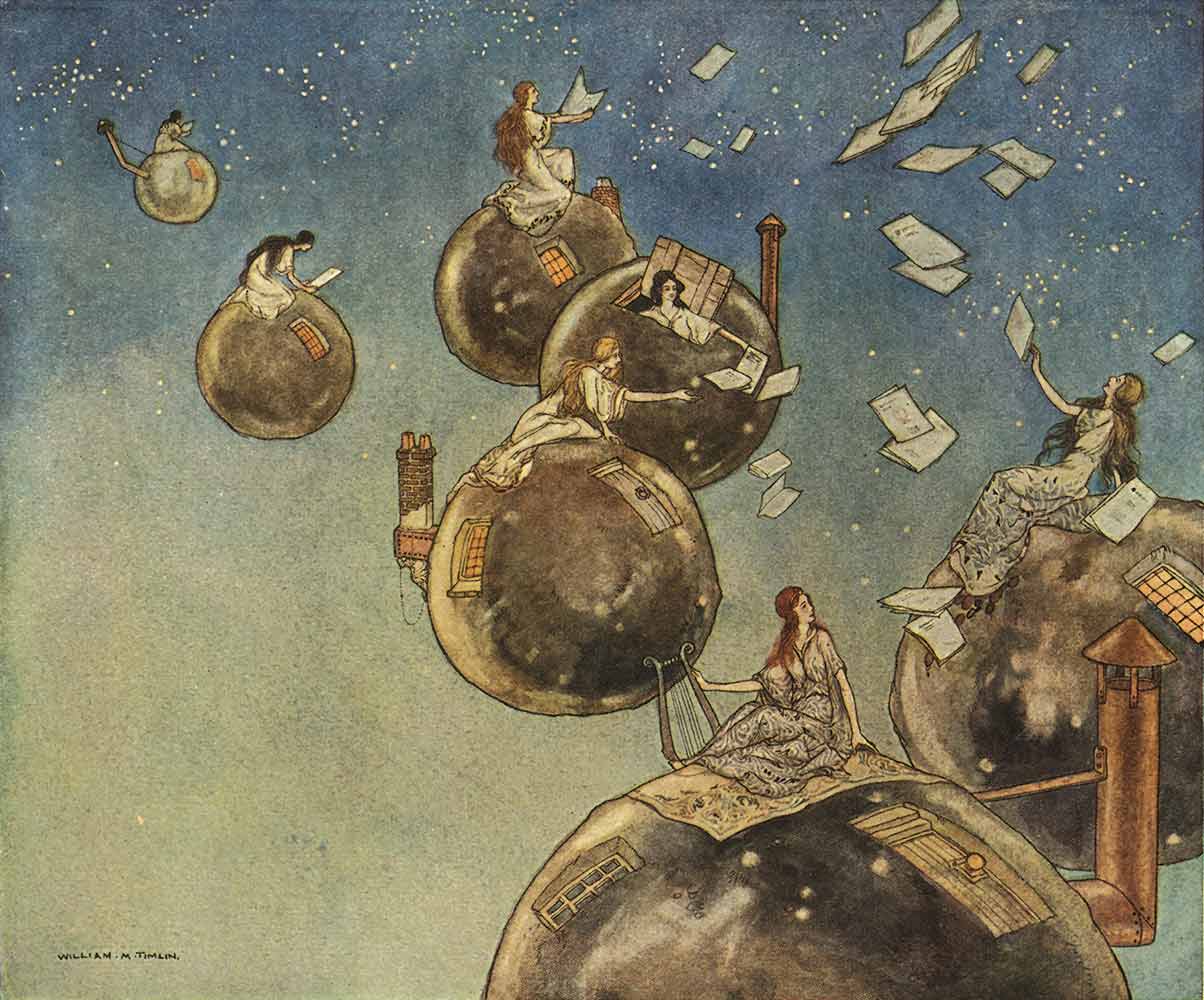
“From now on, I will not trust anyone who isn’t angry.” The science-fiction writer Joanna Russ set down those words in 1984. They might have been Russ’s motto. From her 1968 novel Picnic on Paradise, about a time-traveling, take-no-prisoners female assassin named Alyx, to her 1975 pathbreaking lesbian and feminist novel The Female Man, to her collection of essays on feminism, What Are We Fighting For?, in 1997,
Books in review
Novels and Stories
Buy this bookRuss wrote unsparingly, if also elegantly, against those elements in society that keep women, especially lesbians, from becoming our best selves. Her novels and essays sometimes cut themselves short; other times, they cut to the bone. They could make room for hope, and for solidarity, and for erotic joy. Russ saw what was wrong with the world we know, how much needless pain it contains on account of gender roles—and she let herself stay angry about it, too.
Divisive in her lifetime, admired within the world of science fiction then and now, Russ has recently become the seventh sci-fi writer, and the third female one (after Octavia Butler and Ursula K. Le Guin), to get a whole Library of America volume. Assembling four novels (Picnic on Paradise, The Female Man, On Strike Against God, and We Who Are About To…) along with shorter stories, the Library of America volume helps the reader understand the scale and scope of her talents as a prose stylist and a writer of metafiction. And it lets readers see—in Russ, and in the 1970s feminism that nurtured her—not only the rage but also the hope that her astringent imagination found.
Born in 1937, Russ grew up the child of secular Jews in New York. Her parents were public-school teachers, and Russ proved quite precocious. In 1953, at the age of 15, she became one of a handful of girls who excelled in the Westinghouse Science Talent Search, and she might have gone on to pursue a career in STEM. But by that point, she had read too much literature; one way or another, she was going to be a writer. Attending Cornell University (where her teachers included Vladimir Nabokov) as an undergraduate, Russ then moved on to the Yale School of Drama, tried to write plays, settled back in New York, got married and then divorced, and began teaching English at Queensborough Community College.
Russ sold her first sci-fi story in 1959, at the age of 22, and rose through the ranks of genre magazine writers over the next decade. In those days, you could make a living that way, especially if you also taught literature, as she did, first at Cornell, then SUNY Binghamton, and finally the University of Washington, Seattle. Much like her lifelong friend Samuel R. Delany, she theorized and criticized sci-fi as well as created it, and also like Delany, she would move later into more realist storytelling. During the 1960s, Russ and Delany—along with James Tiptree Jr. (born Alice Sheldon)—helped carve out the space for a literary science fiction during the genre’s humanistic, experimental “New Wave.”
Science fiction, Russ later recalled, whatever its overt politics, came with an overarching message of change: Charting a world outside our own, it also showed how “things can be really different.” In her narratives about alternate futures and possible worlds, one found not just gee-whiz wonder and spine-tingling danger, but also liberation. In 1966, Russ completed her first two tales about a “six-fingered pick-lock” named Alyx, who would become a recurring character. Tough-as-steel female swashbucklers may be commonplace today, but Alyx was something new at the time: Women in genre fiction did not normally slice their way through opponents, rescue captives singlehandedly, commandeer pirate ships, seduce the historical Blackbeard (no, really), or leave male chauvinists to die in a strange planet’s ice and snow. If Alyx did not represent political feminism, her sharp blades and sharper remarks at least pointed the way.
For all the fun that readers had following Alyx, Russ’s turn to explicit politics—and her coming out as a lesbian—required another awakening: the Cornell Conference on Women, held between semesters in January 1969. The event led her to support, in clear terms, a “feminist opposition to women’s oppression,” grounded in “our own anger and our own healthy selfish desires for a more happy life.” That opposition led to a brace of essays and nonfiction writing, eventually collected in Magic Mommas, Trembling Sisters, Puritans and Perverts; To Write as a Woman; and What Are We Fighting For? These volumes show her embracing one of the main realizations of feminism from the era: that the personal is political. But in them we also find Russ dismantling various patriarchal canons, taking down the pretensions of psychoanalysis, linking feminism to socialism (“capitalists are thieves”), and explaining what white feminists gain by noticing race and acting in solidarity with women of color. When white women overgeneralize their experiences, as Russ observed in one essay, they risk assuming they can understand everything. They take on “the assumption of Being-in-Charge” and thus “the obligation To Control (or at least To Fix) Everything.” True feminism involves listening to others—to people unlike you—and asking what you do, and do not, hold in common.
The Russ of the 1970s never stopped writing science fiction, but her goals for it had begun to change. For her, it was now impossible for one person to be the protagonist of a book-length feminist story. No one woman could show at once how it feels to escape from sexist dictates, and how it feels to live, half-awake, within them; no one woman could speak at once to the promise of feminist futures and against the risks that an imagined revolution could bring. So Russ, in The Female Man—her best and by far most influential novel—created four women, with a world for each. Cheery, self-confident Janet hails from the idyllic all-female planet of Whileaway, a society “in the future. But not our future.” Joanna is both the author and a character on our Earth who plays host when Janet visits our America: “I rode in closed limousines with Janet to television appearances…I took her to the zoo; I pointed out New York’s skyline at night as if I owned it. Oh, I made that woman up!” Needy, cat-loving Jeannine comes from a New York where “the Depression is still world-wide”; her desperate straits have led her to believe that she has no choice but to catch a man. Joanna says that Jeannine “has been maimed almost to death by a vigilant self-suppression quite irrelevant to anything she once wanted or loved.” “Everything in the world…seems to say to her, ‘You can’t.’”
These three women—or, if you prefer, three versions of one woman from three timelines—prepare Russ’s readers for feminist anger: We want to do something about (or to) the society that has created Jeannine, and maybe about the one that created us. We might yearn to visit Whileaway or rage because we can’t get what Janet has. The novel’s fourth woman, Jael, channels that anger. Showing up halfway through the novel, she announces: “I’m the spirit of the author and know all things.” She also sets in motion what counts as a plot, revealing that she’s a military attaché from a timeline with one all-female and one all-male nation, Womanlanders and Manlanders, who carry on a multi-decade shooting war. What Jael wants from Joanna, and from Janet, and how her timeline fits into theirs, becomes the great turn in the book that I won’t spoil here.
The Female Man shows how women—even women living in different worlds—establish links to one another. Interweaving Jeannine and Joanna’s frustrating day-to-day with the sexy facts about Janet’s utopian Whileaway, and then with grisly ones about the kidnappings and the sex slaves (on both sides) in Manland and Womanland, the ideal keeps interrupting the real, and vice versa. Whileaway offers collective childcare, comprehensive career training for young adults, polyamory if you want it, solitude if you want that, and a revered old age. As we see how these utopian but entirely reasonable elements constitute Janet’s everyday life, we also see what’s missing, what we might crave, in the life of our Earth in 1975, or in 2024. Who wouldn’t want the world of Whileaway? Who wouldn’t ask how to get there, or whether any group of people—even a group that’s all women—ever could?
Part of the genius of The Female Man lies in how its utopian and dystopian worlds need each other: Joanna’s contemporary Earth looks exciting and full of promise to Depression-era Jeannine, but it also looks bizarre and backwards to Janet and like an unconquered territory to Jael. One woman alone, Russ suggests, cannot save herself, let alone anyone else: We need to find alternate versions of ourselves and allies who do not look just like us.
This promise of collective self-emancipation becomes even more pronounced in Russ’s 1980 realist novel On Strike Against God, which swerves from sarcasm to glee. Its hero, Esther, discovers lesbian love with a back rub and a vibrator, but cannot truly find liberation until she discovers the community of “my first Lesbian bar.”
Russ’s women, from Alyx to Janet, Joanna, Jeannine, and Jael to Esther, discover traps, social and physical, but do not stay there: They break free or die (they die a lot). The traps that they explore are, by and large, not of a science-fiction variety but the kind depicted in the fiction we now call naturalistic: They emerge from social or economic (or, rarely, ecological) systems that seem too big to change. The narrator in Russ’s 1977 novel We Who Are About To… ends up killing the rest of her stranded party (“five women, three men”) so that they do not spoil a wild planet by starting a patriarchal colony. Minor characters in her earlier novel Picnic on Paradise fall to their deaths and leave frozen corpses, like people in a Jack London story. Nuns in the story “Souls” (also included in the Library of America volume) get slaughtered or enslaved by Viking raiders despite the efforts of the heroic Abbess: She, alone, is not enough. Alyx’s cyborg lover in Picnic dies in a mountain crevasse because a more conventional man, Gunnar, hesitates before offering help. “None of us,” Gunnar tells Alyx afterward, “can help the way we are brought up, Agent. You are a creature of your world, believe me, just as I am of mine.” So Alyx kills him.
If you do not want to die, physically or spiritually, then you must seek your own joy with others who are like you, Russ insists, and share this sense of joy. Only then, if you can, will you be able to change a system. Living in this world as a woman, especially as a straight or straight-passing woman, meant “learning to despise one’s self.” Writing about this fact through science fiction meant recognizing it without giving in to it. Russ wrote to show women—sometimes, especially, queer women—how to imagine a better world.
Russ’s stories overflow with what we might now call nonbinary people—women disguised as men, women who identify with gay men. “Pretend you’re a man,” Esther tells herself in On Strike Against God. “I did that when I was fourteen. But that’s forbidden (and impossible). I used to daydream…that I was a man making love with another man. Which still strikes me as fairly bizarre, if you start thinking about the transformations of identity involved.” The wise, generous, world-weary Abbess from “Souls” departs from her sanguinary trials on Earth to rejoin her people in her celestial home (or on her home planet, or in her home timeline): “None of us can remain here long as our proper selves or even in our true bodies.” Russ’s fiction sometimes imagines a world without, or beyond, binary gender, like the one to which the Abbess flees, or like Whileaway, where women cannot be subordinate because there are no men.
Sometimes, however, her fiction imagines a world in which the binaries of gender come without oppression, where women win or at least strike back. And sometimes its sexual politics have not aged well. Manland, from Jael’s world, satisfies its would-be he-men sexually through “the changed and the half-changed,” with (Joanna speculates) “a secret feminine underground that teaches them how to behave.” These sex slaves seem, to Jael, like mutilated men, though they have undergone training and medical procedures in order to look and act like women. Jael might be a TERF today, though the real-life Russ, who hung out with Delany and befriended Tiptree, might have known better.
Russ put forward a magnetic sense of herself, in her own person and through her time-traveling narrators. But she also seemed aware of a brittle fragility, even before she became physically disabled. “People like us are so spectacular—all those sparks and edges,” one late narrator says, “but it’s only self-defense. It’s the years of never getting what we needed.”
Popular
“swipe left below to view more authors”Swipe →Along with her fiction, Russ proved to be an insightful critic, with sharp eyes and sharper knives. Comparing the science fiction of her own day to Charlotte Perkins Gilman’s all-female utopian novel Herland (1917), Russ observed that “our landscapes are wilder, our characterizations more complex, our ideas of the possible more bitter and more limited.” Writing on Le Guin’s otherwise worthy The Dispossessed, Russ diagnosed in it “a radicalism without teeth.” Keith Roberts’s beautiful Pavane, an alternate history of England where the Catholic Church still rules, shows that “Roberts is a real writer” who “dwells on things for their own sakes,” so that “the most important points in the book are not the most important points of the plot.” We could say the same about Russ. It would be, as she meant it, a high compliment.
Alas, none of Russ’s nonfiction appears in this Library of America volume. (Will there be another?) Nor do her works of Star Trek erotica, which lucky collectors can find in 1980s fanzines, where Russ used the pseudonym Janet Alex. The rest of us can look on the Web for Russ’s prescient, pre-Internet defense of erotic fan fiction, published in 1985 as “Another Addict Raves About K/S” and then republished in an essay collection the same year as “Pornography by Women, for Women, with Love.”
Nor does the Library of America collection include her elegant, sad ghost stories and fairy tales. In the heart-crushing “How Dorothy Kept Away the Spring,” we meet a young girl who chooses to die and remain in a fantasy world rather than grow up and go to school. In “Russalka,” Russ’s version of “The Little Mermaid,” we get an even sadder and angrier story than the already sad and sometimes angry Danish original. The mermaid, who looks like a giant frog once her glamour is gone, flops around the palace floor while expiring, calling her prince a fool. Published as a story on its own, “Russalka” also appeared as a tale within a tale in Russ’s children’s fantasy Kittatinny. In it, Kit, our adventurous heroine, finds and reads about Russalka in a long-discarded storybook. There the mermaid’s tale, though reproduced word for word, changes meaning: It becomes a story about the girls from traditional fables whose fate Kit must learn to avoid.
And learn she does. The eponymous heroine fights free from a series of rocklike beasts that can kill by boredom. She then escapes a vampiric version of Sleeping Beauty, discovers the sea (“like a twin to the land but speeded up”), and eventually finds romantic companionship with the girl she once scorned. Kittatinny is Russ’s happiest long work, and no wonder: It’s easier to envision fulfillment for the next generation than for your own.
And yet that vision of fulfillment shines through Russ’s best fiction for adults, too: through Alyx’s exploits, through Esther’s first love, and through Janet’s far-off dream. It is a vision assembled by (as Russ calls another of her narrators) “an anger addict.” But it is also “a book that says you ought to cry buckets of tears over yourself and love yourself with a passion,” floodlit by a hope that feels today more like nostalgia: the hope that things really can, or could, be different, that after some period of chaos of unspecified length, of general strikes or floods or consciousness-raising, women, and especially queer women, might live to see a more welcoming world.
Hold the powerful to account by supporting The Nation
The chaos and cruelty of the Trump administration reaches new lows each week.
Trump’s catastrophic “Liberation Day” has wreaked havoc on the world economy and set up yet another constitutional crisis at home. Plainclothes officers continue to abduct university students off the streets. So-called “enemy aliens” are flown abroad to a mega prison against the orders of the courts. And Signalgate promises to be the first of many incompetence scandals that expose the brutal violence at the core of the American empire.
At a time when elite universities, powerful law firms, and influential media outlets are capitulating to Trump’s intimidation, The Nation is more determined than ever before to hold the powerful to account.
In just the last month, we’ve published reporting on how Trump outsources his mass deportation agenda to other countries, exposed the administration’s appeal to obscure laws to carry out its repressive agenda, and amplified the voices of brave student activists targeted by universities.
We also continue to tell the stories of those who fight back against Trump and Musk, whether on the streets in growing protest movements, in town halls across the country, or in critical state elections—like Wisconsin’s recent state Supreme Court race—that provide a model for resisting Trumpism and prove that Musk can’t buy our democracy.
This is the journalism that matters in 2025. But we can’t do this without you. As a reader-supported publication, we rely on the support of generous donors. Please, help make our essential independent journalism possible with a donation today.
In solidarity,
The Editors
The Nation


